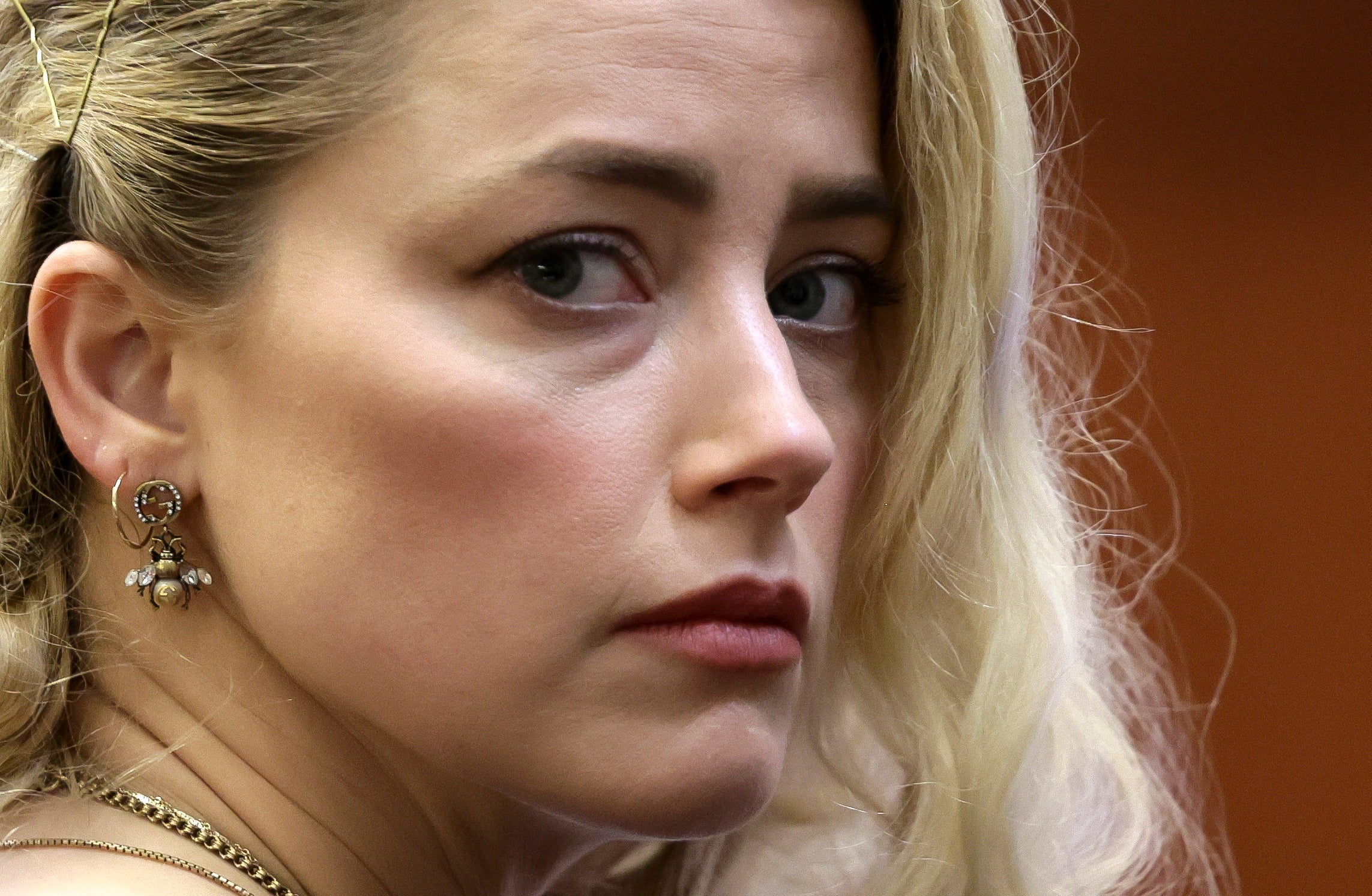What will happen to women after the Depp v Heard verdict?
I’ll tell you what this means for women across the world: if you speak up against sexual violence you will face our culture’s wrath


In solidarity. God, I can’t believe that’s my opening line. What now for women?
I’ll tell you what this means for women across the world: if you speak up against sexual violence you will face our culture’s wrath. The sick, twisted irony is that Amber Heard was sure as hell right when she said that men have power and institutions support that power. I just didn’t expect her argument to be made so clearly in her own court case.
But she was wrong about one thing: “These institutions are beginning to change,” she wrote. The tide is not changing. The consequences of this court case will reverberate across our society for the rest of my lifetime – and yours. It sends a strong message to survivors, including those of my very own clients who have messaged me in absolute despair about what this case will mean for them.
Depp won his defamation case against Heard after a long, bitter fight in a Virginia courtroom that was opened up to the heckles, shaming and mocking of the world. It’s rare for the entire world to see inside a trial about sexual violence and domestic abuse.
The jury found that Heard had defamed Depp, acting with “malice” when she described herself as a victim of domestic abuse. Now she has to pay him $15m (£12m) in damages. She won part of her counter-claim after Depp’s legal team defamed Heard when they said her account of abuse was “a hoax”, so she gets $2m in damages.
The jury’s decision is baffling – on the one hand she defamed him by suggesting he was a perpetrator, but on the other hand one member of his legal team defamed her by saying she made false allegations? Bizarre.
As I sat in front of my iPad watching the courtroom on YouTube, I was staggered by how normal the courtroom looked: like any court in most of Britain and some of the courts I’ve seen on TV in the US. Clinical, cold, ordered, powerful. Everyone sat in their places looking formal, sitting upright. A pin could have dropped and you would have heard it.
After the verdict was read, I saw Amber Heard look down and she seemed to be in physical pain. I had knots in my stomach. Depp was nowhere to be seen. He was touring the UK, hailing his adoring fans.
Depp delivered on his promise of “global humiliation”, but the added bonus was the courtroom, which provided a perfect platform to legitimise and normalise the traumatising of a woman who claimed to be a victim of abuse. I will always call Amber Heard a victim of domestic abuse because a high court judge in 2020 found in favour of The Sun newspaper naming Depp a “wife beater” after he assaulted her on 12 of 14 occasions. That’s still a fact. Depp was refused permission to appeal in England and Wales.
Meanwhile, in the US, the courtroom was a media circus. To many, the trial became a popularity contest judged by five men and two women jurors, which Depp most definitely won.
What message does this case send out? You can be silenced. You cannot utter his name. You will be humiliated in court. You will be blamed. You will be called mentally ill. You will be mocked by your alleged perpetrator and his cronies. You will be wrapped up in litigation costing thousands of dollars at best. You could be bankrupt by the end of the case. And still you will be broken. So what’s the damn point? I’ll tell you what the point is – power.
The silencing of victims allows the abuse to continue unchecked. Let’s go back to why #MeToo started. Remember Harvey Weinstein, the man who owned Hollywood and all the women in it? He continued his reign of rape and terror by forcing women into silence. Many victims were paid to go away, but only after they signed stringent NDAs. He was the fall guy for an established practice across male-dominated professions – Hollywood, the media, finance, law, politics, and it goes on.
Weinstein wasn’t the first guy to make a rape victim sign an NDA, and he certainly won’t be the last. #MeToo promised to change this culture of impunity and silence. It promised to allow women to speak the unspeakable. To share their stories. To find their voices. #MeToo was about holding powerful men (any man, in fact) accountable for the abuse that we suffered. We knew we couldn’t get justice from a legal system that turned a blind eye to NDAs, so we used our voices to demand that we are listened to.
#MeToo was powerful for many reasons, but importantly it showed that women can change the world when we shout #MeToo at the top of our lungs. When we share our stories, we are power in numbers. When we know that he did this to me too. When we know “I’m not alone”. But all of that power has been stripped away and taken from us. Has all the fighting that we did to bring about #MeToo really been for nothing? Just five years ago, women took to social media to name and shame their abusers. Now we are silenced. We’ve gone backwards. We’ve returned to a time when women are silenced yet again.
Back in the 1970s and 1980s, feminists were battling the sex wars. This is a new war. This is a gender war in real time. The right to speak about the abuse you’ve suffered is the most fundamental human right. That right has been taken away from the most vulnerable victims of domestic abuse.
A man’s right never to be spoken about is more powerful than a woman’s right to tell her story. In other words, domestic abuse must remain behind closed doors. If you dare to make the personal political, you will be punished. This is the real backlash to #MeToo, a movement full of hope and promise that is now dead and buried.
In a country where women don’t even have the right to abortion, is it really any wonder that they don’t have the right to speak out?
Dr Charlotte Proudman is a barrister specialising in violence against women and girls, and a junior research fellow at Queens’ College, Cambridge
Join our commenting forum
Join thought-provoking conversations, follow other Independent readers and see their replies
Comments
Bookmark popover
Removed from bookmarks